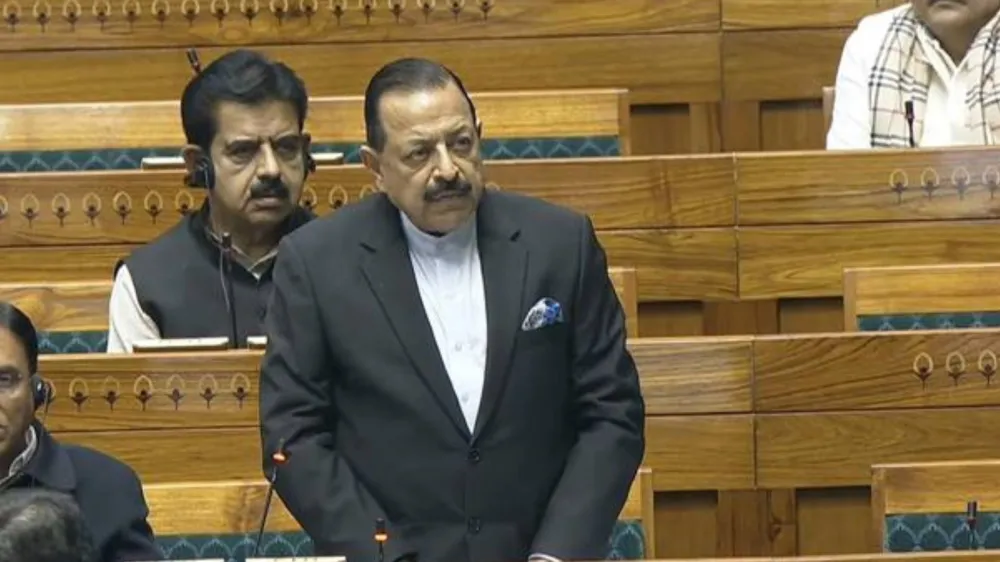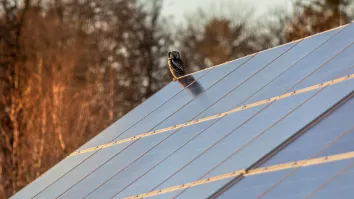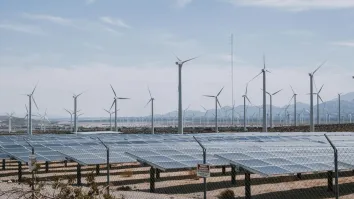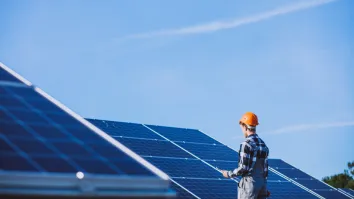Vietnam bets on solar auctions to develop its renewable energy market
By Bree MiechelCo-authored with Nguyen Thi Xuan Trinh, Partner VNA Legal
Over the past two years, Vietnam’s renewables sector has experienced unprecedented growth, with installation of solar PV capacity far exceeding government targets. This growth is largely attributable to the 9.35 cents per kWh solar feed in tariff (FIT) that applied to plants commissioned by 30 June 2019, and which will continue to apply to projects in Ninh Thuan province until the earlier of the government’s capacity target of 2GW for the province being reached and 31 December 2020. Despite the installation success however, unless addressed, lack of coordinated governmental supervision and synchronous grid infrastructure development is likely to impact future development in Vietnam.
Earlier this year, notices were issued to wind and solar PV installations in Vietnam requesting reductions in output by between 38-65% from their design capacity, severely impacting projected investment returns. This impact on investment returns stems from the “take and pay” rather than “take or pay” nature of the mandatory form of Power Purchase Agreement (PPA) that applies to solar PV projects under the FIT.
EVN is essentially only required to pay for dispatched electricity and, whilst the installation success demonstrates that this deviation from international bankability norms has not to date held back investment in the sector, it has limited the group of market participants to local and regional players with access to less risk adverse financing sources. The requests to reduce capacity and lower tariff proposed under various iterations of a draft law on a second round FIT released over the course of this past year however has given even some of these investors and lenders pause, and heightened scrutiny of grid infrastructure in the country.
Transitioning to an auction process
Against this backdrop, and with neighbouring Cambodia achieving a tariff of 3.87 cents per kWh in its recent auction for ground mounted solar PV, the Vietnamese Prime Minister in November announced the intention to abandon a second round FIT for ground mounted solar PV in favour of an auction process. Further, news of an ADB backed pilot auction for floating solar PV capacity has just come to market with tenders anticipated for up to 400MW over 2020 and 2021 and potential tender launch between June and September this year.
A World Bank Scaling Solar program has been anticipated by market participants for ground mounted capacity however whether ADB or World Bank-supported, the development of solar PV in Vietnam can move forward in a sustainable manner. As with the ADB-supported Cambodian auction, what can be expected from auction processes under the auspices of the World Bank or ADB is a more equitable allocation of risk between the offtaker and project sponsors and alignment with international bankability norms including, critically, greater certainty of offtake. This would facilitate a significantly lower electricity tariff, the savings from which could be allocated to upgrading Vietnam’s transmission infrastructure.
MOIT report and its Draft Mechanism
On 31 December 2019, the Ministry of Industry and Trade (MOIT) submitted to the Prime Minister’s review a report including its draft mechanism for encouragement of development of solar power in Vietnam for the Prime Minister's review (Draft Mechanism). Pursuant to the Draft Mechanism:
(a) a tariff of 7.69 cents/kWh is proposed for floating solar power projects and 7.09 cents/kWh for ground mounted solar power projects for which a PPA has been signed, provided implementation of construction commenced prior to 23 November 2019 and COD is achieved by 31 December 2020;
(b) the position for solar projects in Ninh Thuan province be as stated above (i.e. subject to the 2GW capacity cap a tariff of 9.35 cents/kWh apply to projects having COD before 1 January 2021);
(c) a tendering process apply to grid-connected solar power projects not meeting the conditions set out in (a) or (b); and
(d) a tariff of 8.38 cents/kWh is proposed for roof solar power projects.
The Draft Mechanism attached to the MOIT report has not been officially approved or issued yet and the above tariffs remain MOIT proposals only.
Structuring an auction process
There are advantages and disadvantages of any auction process and key issues to consider in designing the optimum auction mechanism for any market.
Based on the experience of other countries that have implemented renewables auction processes, Vietnam may witness major changes in the profile of developers that undertake solar projects in the country. Utility players and energy majors with greater logistical capacities, able to squeeze their supply chain and optimise costs to reduce their tariff bids are well suited to auction competition and tend to push smaller and local players out of markets.
In the Cambodian auction process the lowest electricity tariffs were submitted by ACWA Power (Saudi Arabia), Prime Road Alternative Co (Thailand), and a Sinohydro (China) and SchneiTec (Cambodia) joint venture. Ultimately, Prime Road Alternative Co placed the lowest bid. Similarly, in the World Bank’s Scaling Solar auction in Zambia, bidders included the likes of EDF (France), Enel Green Power (Italy) and Mulilo Group (South Africa).
Where the procuring authority does not provide the site for the development of projects under an auction process there will be greater capacity for local participation. The scheme may also specify stringent minimum local participation and content requirements as we are seeing in the latest Large Scale Solar 3 (LSS3) solar PV tender in Malaysia.
Geographically further afield, capacity auctions under the South African Renewable Independent Power Producer Procurement (SA REIPPP) Programme over the past eight years have been highly effective at delivering fast tracked additional capacity to the grid across various regions of South Africa. Participants’ tender submissions included their proposed tariff alongside project details (including land rights) and expected benefits to the local community. Successful SA REIPPP Programme bidders have been able to self-build parts of the required transmission infrastructure, something Vietnam may look to in assessing the benefits of any liberalisation of the State’s transmission infrastructure monopoly. Last month the Vietnamese Prime Minister directed the MOIT to look into private participation in transmission infrastructure on a pilot scheme basis.
Also incorporated into the SA REIPPP Programme documentation, have been appropriate incentives/disincentives to ensure the timely completion of projects and restrict transfer of development rights, mitigating the risk of speculation and flipping of PPAs seen across many markets in this region.
For approved projects in Vietnam that failed to achieve the round one FIT deadline, there is an appeal in the SA REIPPP Programme auction structure. Whilst some projects already approved and under construction with PPAs in place may still qualify for a FIT, indications are that not all approved projects will qualify. Subject to prudent site selection, a scheme akin to the REIPPP Programme would allow the developers of those projects to bid under the auction and not forfeit their pre-development investment. The Vietnamese Government will however require control over the location of capacity awarded under an auction process for it to be successful in reducing electricity costs, or EVN will be left paying for electricity it cannot take due to lagging transmission infrastructure development.
MOIT had requested late last year that provincial authorities and EVN temporarily suspend further agreements on solar power projects.
MOIT has however just issued a letter to EVN agreeing for EVN to continue receiving and resolving requests for power purchases from roof top solar power projects. It is also understood that rooftop solar projects will continue to benefit from FITs whilst ground mounted and floating solar PV transitions to an auction scheme. We await confirmation as to whether the Draft Mechanism will be accepted and the form of auction mechanism that will apply for the future development of Vietnam’s solar sector.




















 Advertise
Advertise






